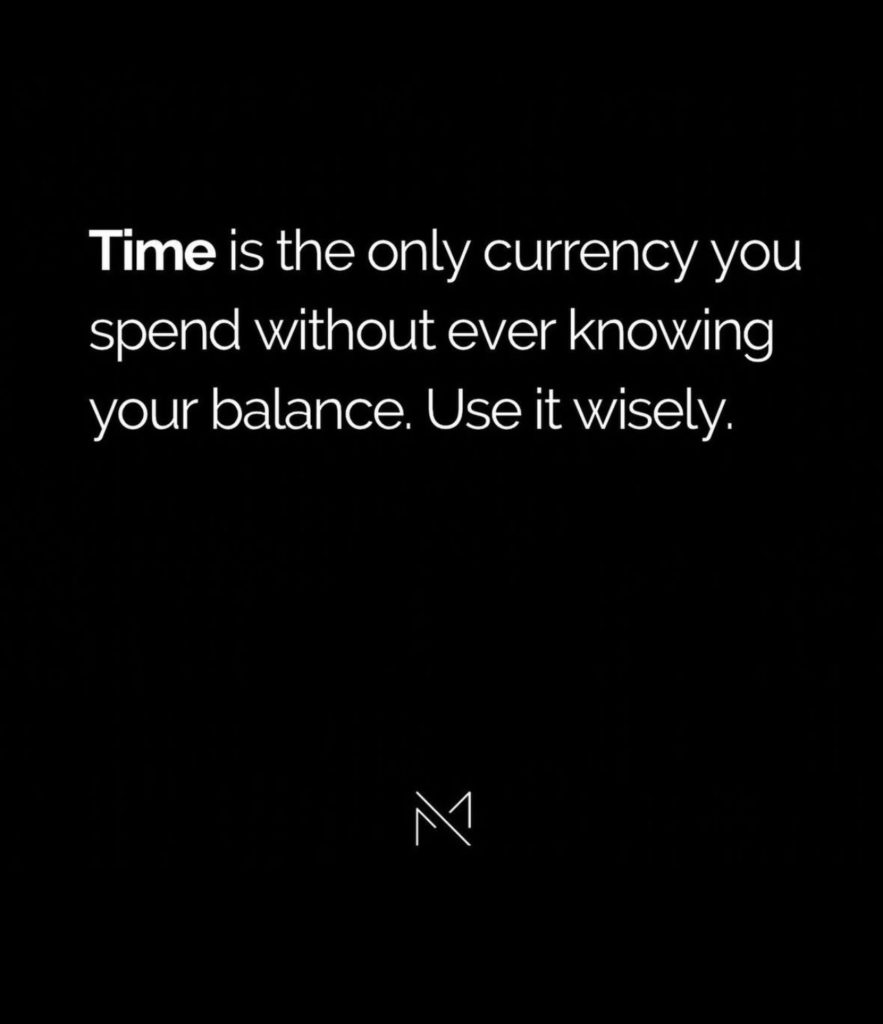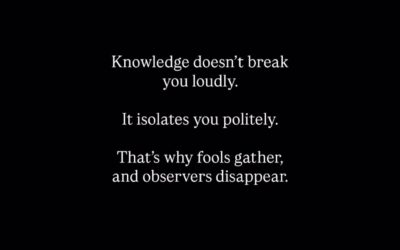We often come across statements like, “Time is the only currency you spend without knowing your balance,” and nod in agreement, perhaps without giving it the full depth of thought it deserves. These ideas become part of a cultural echo chamber—phrases we repeat without truly connecting to their meaning. But when we really sit with the notion that our time is finite, that we don’t know our “balance,” it becomes clear that living intentionally extends far beyond accomplishing the things we’ve put on our bucket lists.
Yes, it’s important to pursue our dreams, travel to places we’ve always wanted to visit, and achieve our goals. But using our time wisely also means acknowledging where we’ve gone wrong, offering sincere apologies, and making space for accountability in our relationships. Regurgitating motivational statements is easy, but truly applying the message to our lives is a challenge. The concept of time as currency asks us to be aware not only of what we want to achieve but also of the relationships we nurture, the amends we make, and the personal growth we commit to.
In the end, how we spend our time is a reflection of the values we hold. If we see time as a precious and limited resource, we are urged to make every interaction, apology, or moment of reflection meaningful. Instead of focusing solely on “doing all the things,” perhaps we should also focus on being—being present, being accountable, and being kind to ourselves and others. After all, the balance we leave behind isn’t measured by our achievements alone, but by the connections we make and the healing we offer along the way.





0 Comments